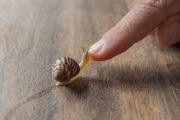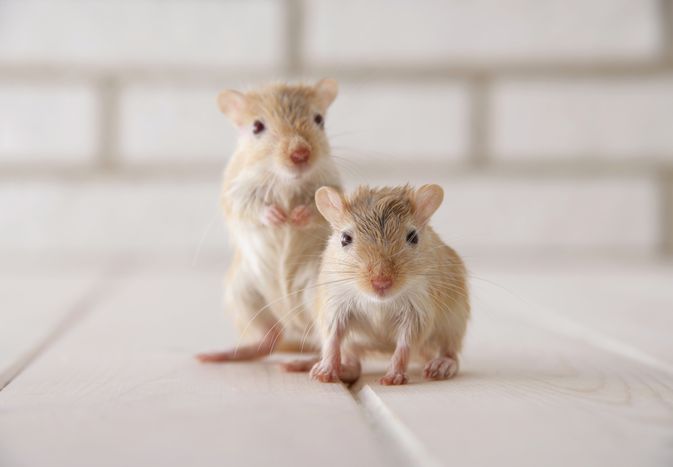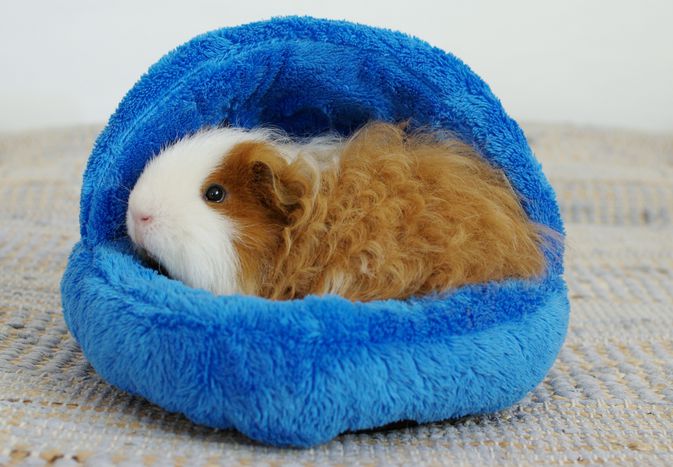Explore more:
- Small Pets
- Exotic Pets
- Exotic Pet Care
Some pets are as slow as sloths so it can be difficult to tell if they are alive. Snails are one such animal that some pet owners have a hard time determining whether or not they are sleeping. It's important to know if your snail is sleeping, or doing something else that is more concerning, to ensure its enclosure is appropriate, though.
Snails do sleep, but not very much. It was not known how a snail sleeps until 2011 when Canadian researchers studied pond snails and discovered they do in fact enter a sleep-like state. The eight pond snails in the study slept intermittently in a pattern that repeated every two to three days, unlike the 24-hour cycle that most animals use. Roughly seven bouts of sleeping for 21-23 minutes at a time occurred over a 13 hour period. This sleeping pattern was then followed by 33-41 hours of activity before repeating. The time of day did not seem to play a role in when the sleeping bouts occurred. Different species of snails may have different sleeping patterns but they have not been studied. This is compared to humans that sleep for seven to eight hours every 24-hour period and usually at night.

The pond snail study showed the snails had a relaxed foot, mantle, and tentacles and the radula (tongue) did not grab at anything when they were in a sleep-like state. The shell may flop over due to the relaxed mantle but the sleeping snails did not curl up into their shells. There was also a reduced response to being touched and to food. Since snails sleep for short only about 20 minutes at a time, if after looking at it and you still can't tell if it is sleeping, simply wait half an hour and see if it is more alert.
While your snail may simply be sleeping, it's also important to remember how long a snail typically lives. If you have a wild-caught garden snail that you found in your yard, the life expectancy is usually less than five years, but it is also not unheard of for them to live into double digits in captivity. Larger land snails like giant African land snails are also expected to live to be at least 10 or more years old. Depending on the species of snail and how old it was when you got it (which you may not always know if you found it in the garden), your snail may only be in your care for a short period of time, or you could be enjoying your little gastropod for the next decade or more.
If for some reason you must wake your sleeping snail, petting it is the best way to rouse it. Putting food in front of its face may also wake it, but this response may not work as well as touching your snail. You should never grab a snail by the shell, regardless of whether they are sleeping or awake, though, as this can damage the mantle and even cause death. A gentle stroke or scratch will suffice. Since snails only sleep for about 20 minutes at a time, it is simply best to wait for them to wake up on their own.
If your snail has been sleeping for more than 24 hours, it is estivating or hibernating. Some species of snail will go into hibernation if they get too cold and dry. This typically occurs in the winter in wild snails. Their heart rate will lower and they may appear to have died, but they are actually just conserving their energy. Some land snails can reportedly hibernate for up to three years, though this is not the same as sleeping. This lengthy hibernation is also an indication that your snail's environment is much too cold and dry. Warming the enclosure and adding some moisture should rouse your hibernating snail.
On the other hand, if your enclosure is too hot and dry, your snail may enter into estivation. In wild, this occurs during the summer, but if your enclosure lacks moisture and is too warm, this lengthy sleep can begin. A mucus coating may be visible as evidence of your snail's attempt to protect itself from the dry heat; this is an indication that you need to cool down its enclosure. Some species of snails will also burrow into their substrate during estivation. If your snail's enclosure is between the ideal 65 and 80 degrees Fahrenheit, you should not expect to see your snail hibernating or estivating.


IntroductionProper bedding for guinea pigs is essential for comfort, respiratory health, a...

IntroductionSenior dogs (7 years and older, breed-dependent) may have altered metabolism, ...

IntroductionWalking your dog should be an enjoyable bonding experience, not a tug-of-war. ...

Choosing the Right Dog Breed for Your LifestyleBringing a dog into your life is rewarding,...

Recognizing and Treating Feline Eye Infections QuicklyCat eye infections escalate rapidly....

When born and raised in captivity, skunks can make friendly, intelligent, and unique pets...

These social, funny, adorable rodents are great companions for children learning to take ...

Ferrets are playful pets that are very entertaining to watch. These long, slender animals...

Guinea pigs are wonderful small pets, but many people don't realize there are over a ...
Comments on "How Much Do Snails Sleep?" :